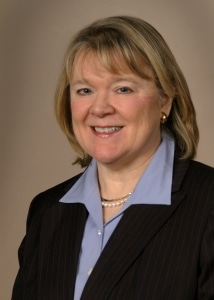
Recent news about the bankruptcy filing at Baltimore Behavioral Health Center is a startling and disturbing example of what can go wrong when nonprofits don’t do all that they can to keep their work ethical, accountable, and above board.
The story reads like a “how to get your name in the paper” manual: allegations like blatant instances of conflicts of interest, related individuals that were both board members and staff members, hiring practices that did not screen for individuals on federal no-hire listings, compensation to nonprofit board members, an organization that was misappropriating staff retirement funds, and more.
Unfortunately, Baltimore Behavioral Health, located just a few miles from the office of one of the leading nonprofit ethics initiatives, the Standards for Excellence Institute at Maryland Nonprofits, could have avoided its missteps, and bankruptcy, if it had employed best practices for nonprofit governance as promoted by the Standards. The Institute encourages best practices in nonprofit governance and management through the Standards for Excellence: An Ethics and Accountability Code for the Nonprofit Sector. Assistance for nonprofit organizations and their leaders includes training classes, written instructions on how to live by best practices, as well as model policies that can be incorporated into nonprofits of any type or size. Organizations that implement all fifty-five of the Standards described as part of the program can earn a Seal of Excellence showing donors and the public at large that their trust is well warranted.
Baltimore Behavioral Health Center could have benefited from the following Standards:
- Avoidance of Conflicts of Interest: “Nonprofit board and staff members should act in the best interest of the organization, rather than in furtherance of personal interests or the interests of third parties. A nonprofit should have policies in place, and should routinely and systematically implement those policies, to prevent actual, potential, or perceived conflicts of interest.”
- Not compensating board members: “Board members should serve without compensation for their service as board members. Board members may be only reimbursed for expenses directly related to carrying out their board service.”
- Unrelated board members: “The board should have no fewer than five (5) unrelated directors. Seven (7) or more directors are preferable.”
- Independent Audit: “For nonprofits with annual revenue in excess of $500,000, the financial reports should be subject to audit by a Certified Public Accountant.”
Additionally, certified organizations are required to have a confidential means for staff, board members and volunteers to report suspected improprieties. Grievance procedures are also promoted as a “must-have” for all nonprofit organizations.
Certainly, from all accounts, it appears that this organization is on the road to restructuring and cleaning up with new managers in place and related parties no longer in important leadership positions. It is our hope that all nonprofits take steps to implement best practices which can help them avoid situations like these. Even more, it is important to build the capacity of an organization to deliberately and confidently achieve its mission for those it serves.



